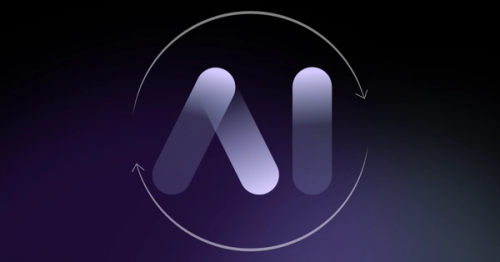Introducing Domino Governance: Turn complexity into momentum
Domino2024-10-08 | 7 min read

For those who ignore AI governance, the consequences are devastating, including reputational damage, slower time to market, wasted time on compliance instead of innovation, operational disruptions, and financial losses due to lawsuits and non-compliance. For example, in 2021, Zillow lost over $100M of its value after using faulty data to forecast house prices, and in 2023, Pfizer had to shut down a COVID-19 vaccine trial with questionable data collection methods.
If AI governance remains unresolved, it will continue to delay AI’s business value, and relegate AI to a list of failed, “so what” experiments, and “nice to have” use cases, dragging profits, and innovation down in the process. However, for those who master governance and de-risk AI faster than they innovate, AI becomes the catalyst for business growth and value.
Why is governing AI so hard?
First, governance today delays AI initiatives, wastes resources, and leaves too much residual risk. That is because models take twice as long to validate than build, as validation happens after the fact, and requires manual work in bespoke tools. For example, an enterprise can take more than a year to comply with a single regulation because of the bespoke approach to governance — and there are hundreds of regulations! New regulations continually emerge (e.g. EU AI Act, Canada’s E-23 Mandate), requiring a full-team team to manually enforce new rules.
Lastly, AI is inherently risky, and models and data are continually changing, making one-time annual audits inadequate. No wonder over 45% of AI leaders anticipate regulatory violations, reputational risks, and delayed innovation from inadequate AI governance (Domino’s REVelate Survey), and 95% of enterprises must replace, re-write or update Governance frameworks for the evolving AI landscape (BARC Survey).
Removing risk: The #1 flywheel for AI value
Now customers do not have to choose between lower AI risk versus transformative AI innovation. Domino Data Lab, a longtime leader in AI, data science and MLOps, just launched Domino Governance — a new solution that embeds policy management and enforcement capabilities into the end-to-end AI life cycle so enterprises can de-risk AI to innovate faster with AI.
Putting AI governance into practice has never been easier
Domino Governance allows customers to orchestrate and automate the process of collecting, reviewing, and tracking all materials to enforce compliance with any internal or external policy — to ensure ethical, safe and responsible AI, mitigate risks, and drive value. What makes Domino so powerful is that policy management and enforcement is made actionable because it’s embedded where data scientists already work — in Domino. This allows enterprise customers to plan ahead and go beyond basic compliance, to dream bigger, execute stronger, and truly transform how they use AI in the first place.
“AI governance holds the promise of faster AI impact, lower cost, and greater business value while reducing risk. When automation is applied to governance and it is embedded into every stage of the AI lifecycle, enterprises can break free from crushing manual effort, to de-risk AI faster than they innovate with AI. This helps them comply with existing regulations, and creates a foundation to comply with new regulations around the corner,” notes Kjell Carlsson, Head of AI Strategy, Domino.
With the new Domino Governance solution added to Domino’s foundational capabilities, including best-in-class reproducibility and lineage tracking, robust security, and project templates and documentation, customers can transform governance into a swift and dependable process with:
- Policy management - Define your policies — start from scratch, or customize off-the-shelf templates based on industry frameworks. Domino Governance automation reduces the governed model lifecycle by 70% and shortens the time to comply with new policies from months to weeks.
- Collaborative and automated evidence collection - One place for data scientists and validators to capture and review evidence. Automate the generation of evidence to increase speed and consistency.
- Global visibility - One place to see policies, status of compliance, and open actions across all projects and models.
How Domino Governance works
Risk managers and policy owners simply customize and set policies, using Domino templates.
Then, AI builders and data scientists complete those policy checklists and processes as they work in Domino. All necessary AI lineage and evidence is automatically collected to accelerate reviews, audits, and compliance. And Domino’s API-driven platform seamlessly integrates with any corporate Governance Risk Compliance system, delivering broader visibility into AI risks.
What great AI governance looks like
Great governance is achievable with the right tools, and the impact on innovation can be game-changing, including:
- Accelerated impact through streamlining model development and deployment processes while de-risking AI.
- Improved innovation by investing more resources into innovation instead of governance.
- Seamless compliance from automating compliance documentation, visibility and reporting.
- Reduced risks from continuously monitoring and validating models in production.
- Future-ready enterprise that swiftly adapts to new requirements and keeps new technologies safe.
Conclusion
The one key to unleashing and de-throttling the power of AI today, is governing it. That can only be done with technology that empowers people and makes AI governance actionable on a massive scale. Only by ensuring safe and confident innovation, and identifying and mitigating all AI risks can AI become a catalyst for business value.
To learn more, register here for the Domino Governance webinar entitled, “Navigating AI governance in a rapidly evolving landscape,” on October 22, 2024.
Domino Data Lab empowers the largest AI-driven enterprises to build and operate AI at scale. Domino’s Enterprise AI Platform provides an integrated experience encompassing model development, MLOps, collaboration, and governance. With Domino, global enterprises can develop better medicines, grow more productive crops, develop more competitive products, and more. Founded in 2013, Domino is backed by Sequoia Capital, Coatue Management, NVIDIA, Snowflake, and other leading investors.



